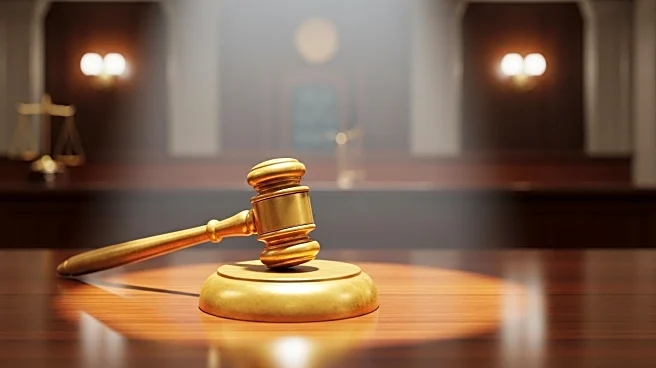What's Happening?
The US Court of Appeals for the DC Circuit has issued a ruling preventing the US Agency for Global Media (USAGM) from removing Michael Abramowitz, the Director of Voice of America (VOA), while an appeal is underway. This decision follows a previous court order that deemed Abramowitz's removal illegal. The case stems from actions taken by President Trump, who directed the agency to minimize its functions, leading to Abramowitz's removal notification. The DC Circuit's decision highlights that the injunction does not allow Abramowitz to exercise executive power nor disrupt the Executive Branch's functioning, differentiating it from previous Supreme Court cases involving reinstated officers.
Why It's Important?
This ruling is significant as it underscores the legal boundaries of executive power concerning the removal of agency officials. The decision protects the independence of VOA, a key international broadcasting service, from potential political interference. It also sets a precedent for how inferior officers, like the VOA director, are treated under the law, emphasizing the need for majority approval from the International Broadcasting Advisory Board for any changes in leadership. This case could influence future legal interpretations of executive authority and agency governance, impacting how government agencies operate and maintain their leadership structures.
What's Next?
The DC Circuit's decision means that Abramowitz will remain on administrative leave, pending further legal proceedings. The USAGM cannot appoint a new director until the International Broadcasting Advisory Board is fully staffed, requiring nominations and confirmations by the Senate. This process could delay any changes in VOA leadership, maintaining the current status quo. The outcome of the appeal could further clarify the legal standards for removing agency officials and potentially lead to legislative or policy changes regarding agency governance.
Beyond the Headlines
The case highlights the ongoing tension between political directives and legal constraints within government agencies. It raises questions about the balance of power between the executive branch and independent agencies, particularly in the context of media and information dissemination. The legal proceedings could prompt discussions on the ethical implications of political influence over public broadcasting services, potentially leading to reforms aimed at safeguarding journalistic integrity and independence.










